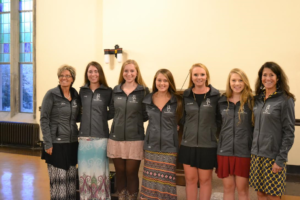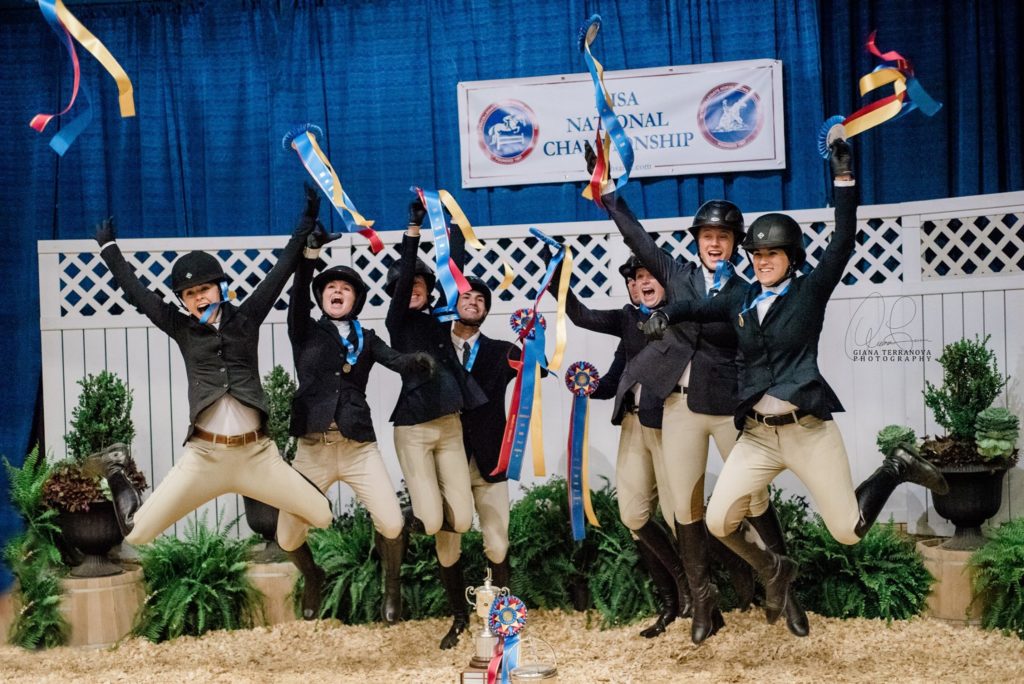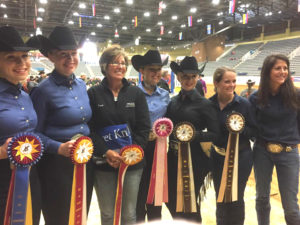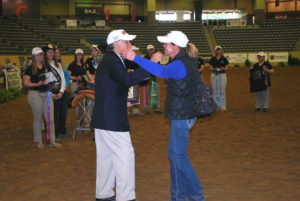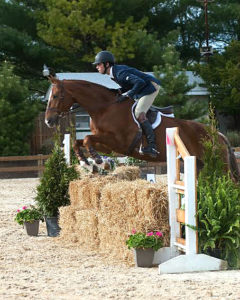
(Contributed photo)
FROM CE STAFF REPORTS
As the Intercollegiate Horse Shows Association fall show season gets underway, we’d like to introduce you to one of its bright stars, Ryan Genn. He’s technically a resident of Ohio, but Georgia gets to claim him for most of the year, as he is a full-time student at Savannah College of Art and Design; Genn has plans to eventually make his profession in training and riding showjumpers.
This is a world that, at first blush, seems like the champagne of riding disciplines – colorful, effervescent, exciting. Genn would probably agree that piloting a gifted jumper around a grand prix course is all of these things, but he has taken great pains to make sure his bank of knowledge includes a lot of experience gleaned outside the showring.
RELATED STORIES:
* SCAD takes IHSA Nationals Huntseat Team win
* Full circle: SCAD head coach leads her team to national championship
A comprehensive education
Genn, who is starting his senior year, plans to graduate with a Bachelor of Arts in Equestrian Studies. The program, according to its scad.edu description, brings a comprehensive approach to those looking to enter the horse world as professionals.
Upper level offerings include classes like “Equine Systems, Disorders and Lameness,” “Rules and Regulations for Competition Horses” and “Equine Business Law and Ethics.”
Genn said he has gleaned quite a bit of useful knowledge from his classes. He cited one professor, Dr. Rebecca Evans, as being particularly influential in his learning process.
Evans teaches veterinary courses; these are the classes Genn feels have really elevated his education. This is where he is learning, as he puts it, “things that every professional doesn’t get to know,” during in-depth studies of subjects like horse anatomy and equine medications.
“It’s a cool program,” he said, “especially for me – being focused on the horses.”
In the ring
Another thing that’s been a positive experience is the catch-riding he’s had to learn in order to help lead SCAD’s IHSA (Intercollegiate Horse Show Association) to the 2015 national championship. Genn said he feels a lot of people underestimate the challenges of the IHSA format because the obstacles in the equitation-style courses are lower in height than the ones in typical jumper competition. The jump height in Genn’s division, open equitation over fences, do not exceed 3’3”, according to the official IHSA rulebook.
The trick is that riders are not allowed any time to test ride the horses they draw for competition.
“Catch riding with no warm-up; that was difficult for me.” Genn said.
He came to SCAD with the experience of having ridden significantly bigger jumps – but on horses he knew, in training that he described as “a lot more physical.”
“You really get in tune with what you’re riding,” he explained. “You sit up one way with your weight, and they listen.”
Genn quickly picked up on the catch-riding concept, and it shows in his record for SCAD. He logged IHSA national team placings for the school during his freshman year and again this year.
He’s also been instrumental in the school’s ANRC (American National Riding Commission) success, helping secure SCAD’s second consecutive Nationals division win this year with a final individual standing of second place. (A quick overview of ANRC national competition: riders are split into Novice and Nationals divisions; with fence heights of 2’6” and 3’, respectively. Each division, according to an ANRC press release, is “judged and scored in four phases: a program ride (including USEF hunter equitation tests); a hunter seat equitation medal course; a derby style equitation course (over natural obstacles in a field); and a written test based on riding theory and equine science.)
Future plans
Genn plans to eventually land back home in Ohio where he will help his father and older brother operate the family training business. His father, Wilhelm Genn, has found significant success as a professional jumper. Ryan said his dad is ready to form a partnership with his sons and let them begin taking the reins.
First, however, Ryan plans to do somewhat of a walkabout session in Germany where much of his family, including a prominent veterinarian uncle, still lives. Ryan plans to take advantage, not only of the excellent quality of riding training, but also of the opportunity to expand his command of the German language. He hopes to be fluent by the time he returns to the states.
Despite having been raised in a family where uncommon riding talent and highly-trained horses are part of the everyday scenery, Genn seems to realize his unusual fortune. Growing up in a riding family, he said, has had its perks.
“It’s good to have people you trust,” he explained. “It’s awesome to have those connections.”

